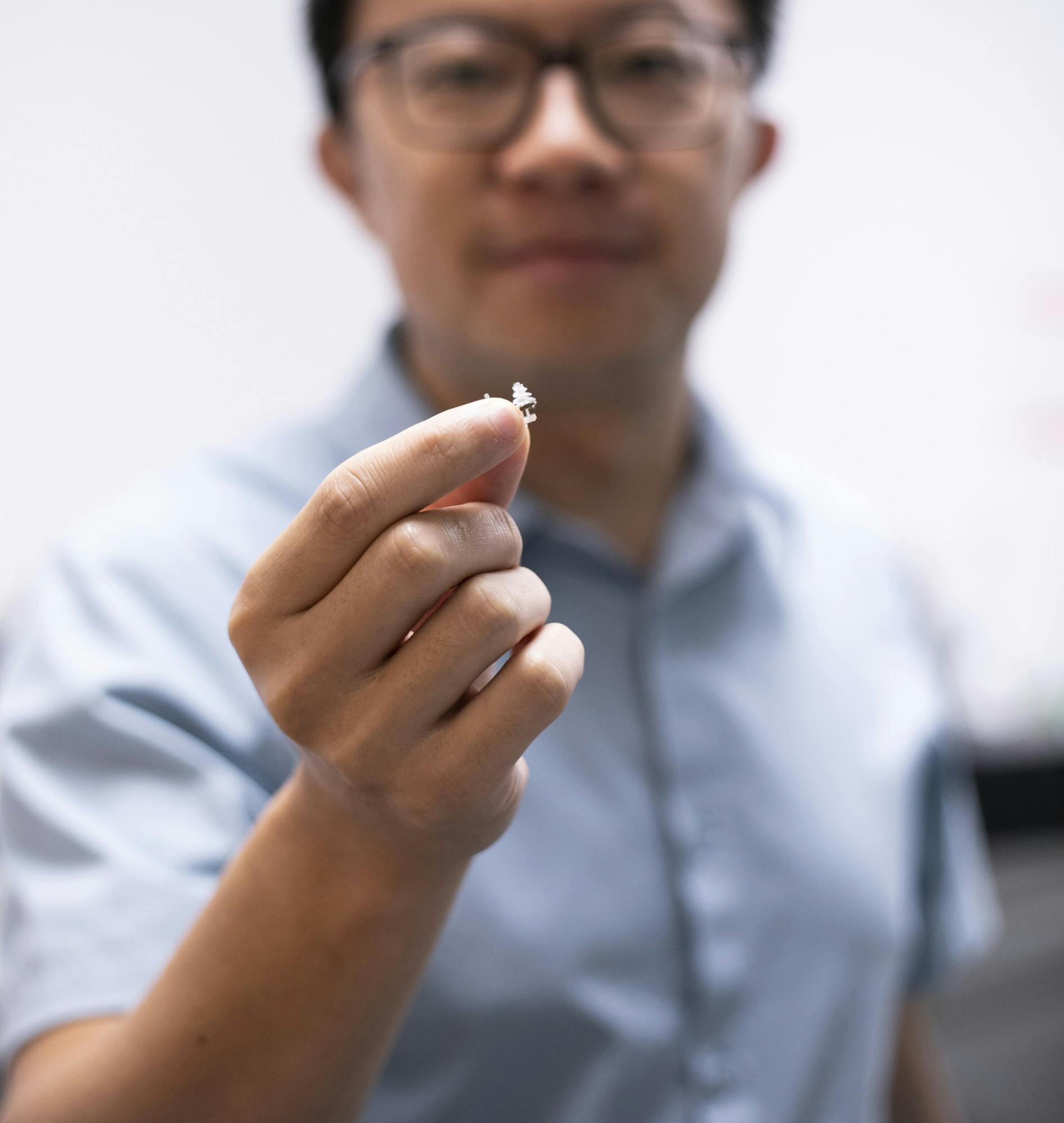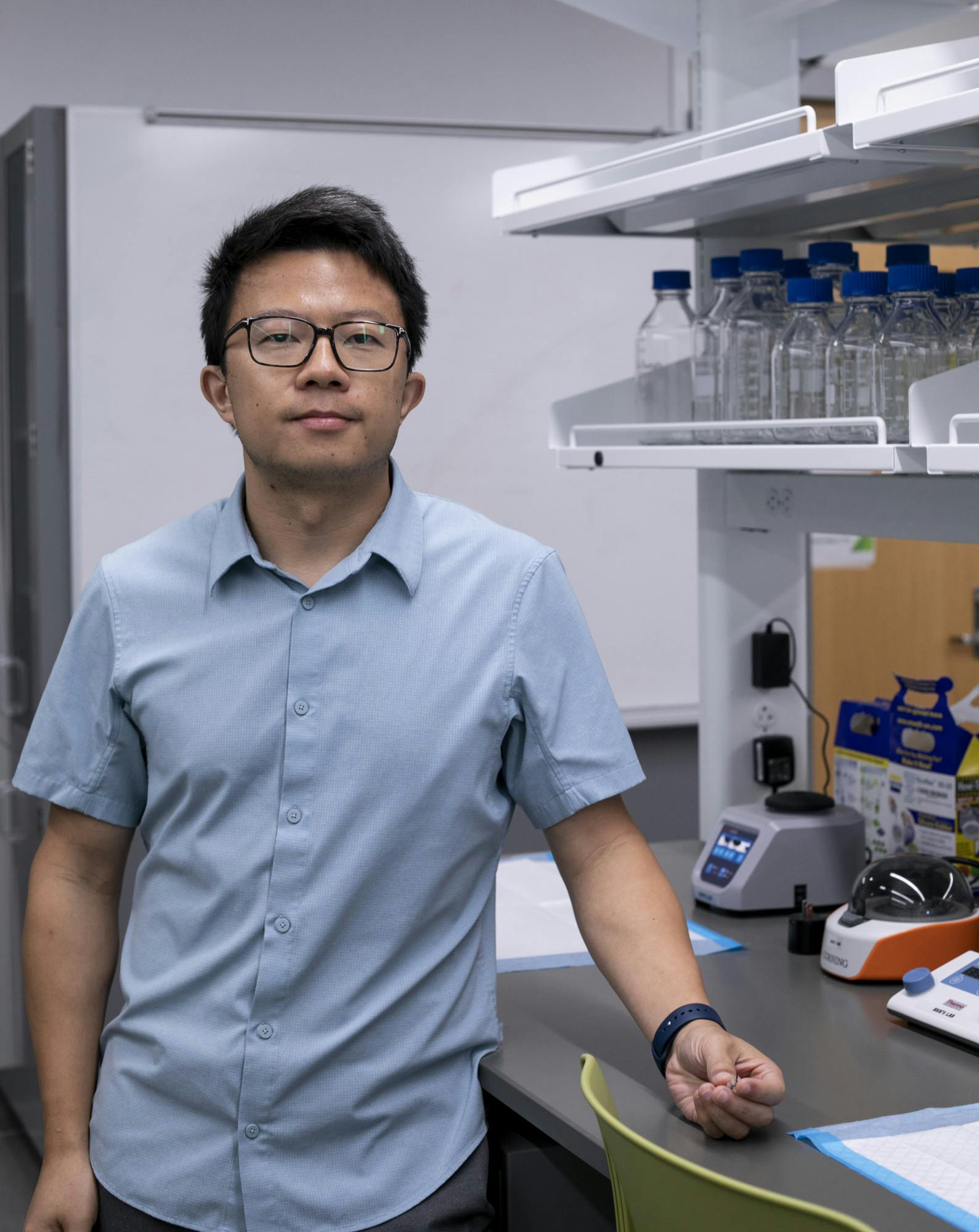Careers in engineering can vary from building bridges, computers and software to improving how microwaves work or creating prosthetics.
With so many paths and focuses, what does it mean to be an engineer?

Careers in engineering can vary from building bridges, computers and software to improving how microwaves work or creating prosthetics.
With so many paths and focuses, what does it mean to be an engineer?
Biosystems and agricultural engineering associate professor Daniel Morris said an engineer is “someone who looks at the world and wants to understand it, and then wants to make it better.”
Engineers work to improve and solve real-world problems, and they do it in a variety of ways and within a variety of industries.
Agricultural engineering focuses on issues related to plants and animals. Morris said the goal is to improve the state of agriculture by introducing new technology.
One major industry in agricultural engineering is breeding and generating new types of animals and crops. With a background in computer vision and 3D sensing, Morris is fascinated by how sensors work and if they could be used to improve agriculture.
“We are concerned about our own health, but also animal health,” Morris said. “Could a sensor that can perceive the environment actually infer useful things about an animal as the animal walks along?”
Civil and environmental engineering is a subsection that designs, operates and improves physical infrastructures people use every day. Civil and environmental engineering associate professor Kristen Cetin said she switched to the field from mechanical engineering, because the work yields more physical results.
“My favorite part is just being able to see what you’re doing and see that it positively impacts and supports what people need to function every day,” Cetin said. “People need buildings to live in, they need roads to drive on, they need bridges across rivers. And that’s rewarding. You’re working for the public good in general.”
Mechanical engineering freshman Chanel Hughes described her major as problem-solving at the intersection of math and science. Mechanical engineers are able to apply their skills to many industries.
Hughes also said she was originally interested in biomedical engineering, but decided to major in mechanical and connect her skills to biomedical trades and activities.
“I want to build prosthetics for people in need,” Hughes said. “That connects with the medical field in a way. I want to do that, basically just helping other people with my engineering skills.”
Biomedical engineering focuses on improving healthcare. Department of Biomedical Engineering associate professor Jinxing Li said his students learn aspects of physiology, biochemistry and neuroscience on top of engineering expertise.

“I think the most interesting part is to collaborate with someone who is outside of your discipline,” Li said. “To interact with doctors and to identify a very important problem which we can solve using a solution in our lab.”
While pursuing his Ph.D. at the University of California-San Diego, Li’s research focused on creating robots for medicine delivery and miniaturized surgery.
Another subsection of engineering, electrical engineering, deals with the technology of electricity. Electrical engineers work to improve many aspects of daily life including powering cell phones and laptops, creating batteries to run electric cars and programming systems like Facebook and Google.
Electrical and computer engineering associate professor Peng Zhang is working on research of free electron-induced electronics. Free electron beams could reduce the amount of radiation affecting human cells in processes like getting X-rays.
Zhang said many electrical engineers work with companies like Intel to create microchips; computer engineers also often work to physically build computers as well as working on software programming.
Computer science and engineering assistant professor Emily Dolson said one of the things she finds most interesting about computer engineering is the component of building conceptual things. She said she is interested in the interactions between hardware and software.
Support student media! Please consider donating to The State News and help fund the future of journalism.
“We don’t think about it much now because, mostly, we’re all using the same kind of computers,” Dolson said. “But, there are increasingly cases where you could build a different kind of computer hardware and that would change the kind of software that you needed to run on that computer.”
Dolson said computer engineering can also be combined with many other fields and the career options are increasingly large as there are few places that don’t need someone who understands computers.
Another subsection is chemical engineering, which focuses on the use of chemical processes to create products, materials and devices. Chemical engineering and materials science associate professor Caroline Szczepanski described it as connecting multiple processes together to get from point A to point B in the most efficient way.
“I think the cool thing about chemical engineering is the skills that you develop in your classes can be applied to a broad range of problems,” Szczepanski said. “I know people who work in food sciences, environmental sciences, water treatment and processing, designing new medicines, things like that.”
Zhang said one of the biggest misconceptions about engineering is that it is a specific subject.
“I would call it multidisciplinary,” Zhang said. “You need to know a little bit of almost everything. It is not a subject and we are focusing very narrowly into certain other subjects.”
This story was featured in our STEM edition. Read the full issue here.